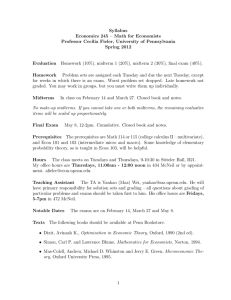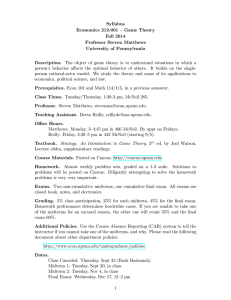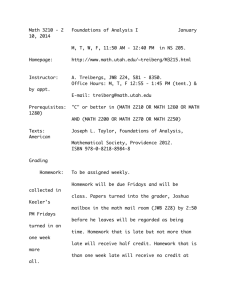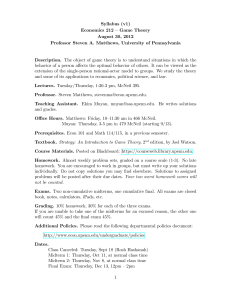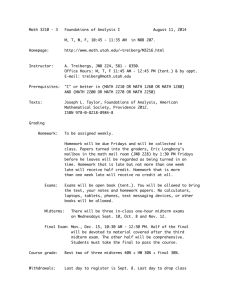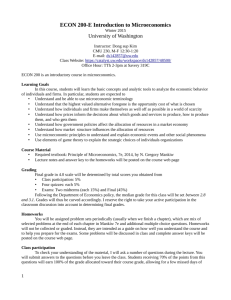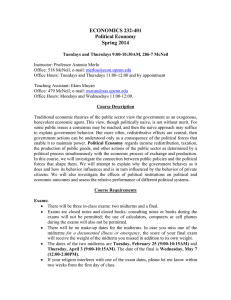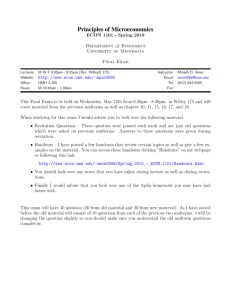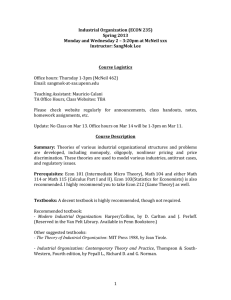Math for Economists Economics 245 Spring 2011
advertisement
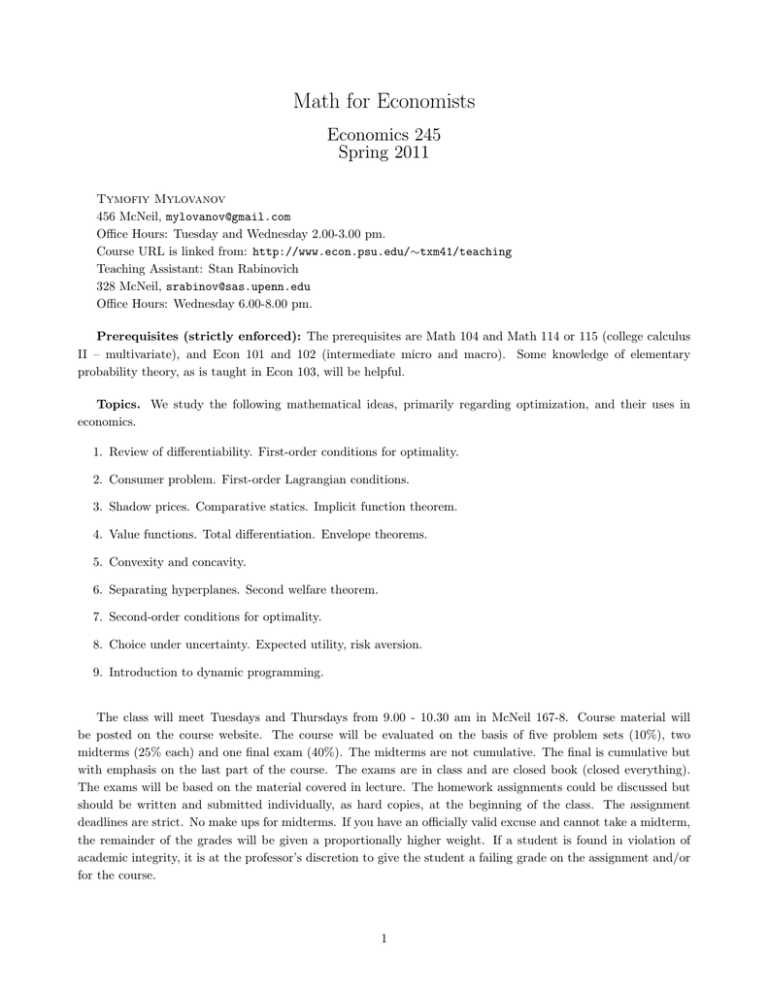
Math for Economists Economics 245 Spring 2011 Tymofiy Mylovanov 456 McNeil, mylovanov@gmail.com Office Hours: Tuesday and Wednesday 2.00-3.00 pm. Course URL is linked from: http://www.econ.psu.edu/∼txm41/teaching Teaching Assistant: Stan Rabinovich 328 McNeil, srabinov@sas.upenn.edu Office Hours: Wednesday 6.00-8.00 pm. Prerequisites (strictly enforced): The prerequisites are Math 104 and Math 114 or 115 (college calculus II – multivariate), and Econ 101 and 102 (intermediate micro and macro). Some knowledge of elementary probability theory, as is taught in Econ 103, will be helpful. Topics. We study the following mathematical ideas, primarily regarding optimization, and their uses in economics. 1. Review of differentiability. First-order conditions for optimality. 2. Consumer problem. First-order Lagrangian conditions. 3. Shadow prices. Comparative statics. Implicit function theorem. 4. Value functions. Total differentiation. Envelope theorems. 5. Convexity and concavity. 6. Separating hyperplanes. Second welfare theorem. 7. Second-order conditions for optimality. 8. Choice under uncertainty. Expected utility, risk aversion. 9. Introduction to dynamic programming. The class will meet Tuesdays and Thursdays from 9.00 - 10.30 am in McNeil 167-8. Course material will be posted on the course website. The course will be evaluated on the basis of five problem sets (10%), two midterms (25% each) and one final exam (40%). The midterms are not cumulative. The final is cumulative but with emphasis on the last part of the course. The exams are in class and are closed book (closed everything). The exams will be based on the material covered in lecture. The homework assignments could be discussed but should be written and submitted individually, as hard copies, at the beginning of the class. The assignment deadlines are strict. No make ups for midterms. If you have an officially valid excuse and cannot take a midterm, the remainder of the grades will be given a proportionally higher weight. If a student is found in violation of academic integrity, it is at the professor’s discretion to give the student a failing grade on the assignment and/or for the course. 1 Students are encouraged to read the departmental policies, in particular, the policy on excused absences and make-up exams. The office hours are a very valuable resource. Please use this resource to your benefit. In particular, do not underestimate the value of TA’s office hours, as this resource provides an alternative, complementary perspective on the course material that could be helpful if there is a difficulty with learning some of the material. It is also always an option is to contact TA by email. TA will also be responsible for grading and solutions of the problem sets. Therefore, all relevant questions should be taken to TA first. Timetable. Due dates for problem sets: January 27, February 10, March 22, April 7, April 21 Midterm I: February 17, 9.00 - 10.30 am Midterm II: March 29, 9.00 - 10.30 am Final: May 3, 12.00-2.00 pm The text is: • Simon, Carl P. and Lawrence Blume, Mathematics for Economists, Norton, 1994. 2
